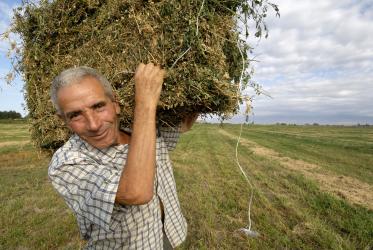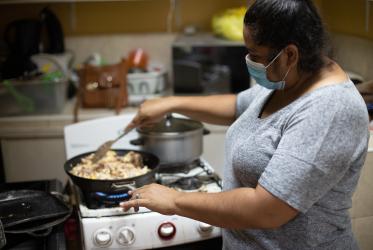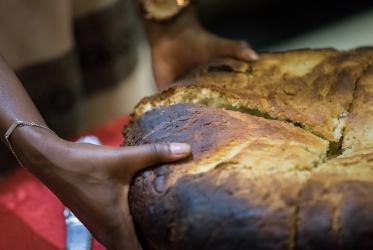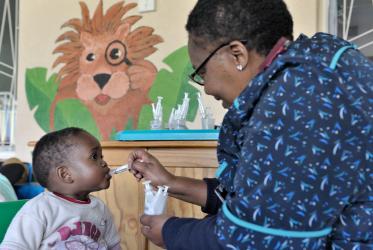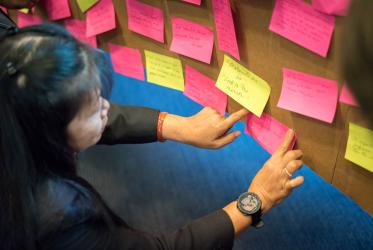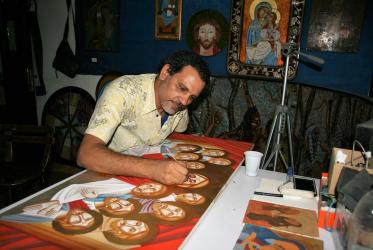Displaying 1 - 20 of 34
WCC Eco-School begins in Crete
15 November 2023
WCC invites all to World AIDS Day prayer service
28 November 2022
Applications open for WCC Eco-School
22 October 2020
Faith communities vital in overcoming hunger
18 March 2020
In Fiji, young people ‘walk the talk’ with advocacy
12 September 2019
On the journey to HIV – bridging gaps, debunking myths
21 February 2019
Dialogue addresses improving HIV testing and treatment for children
10 December 2018
Dr Cecile De Sweemer, the doer of God
30 November 2018
What difference does dressing in black make?
02 August 2018
Working toward an AIDS-free generation
26 July 2018
WCC mourns passing of Calle Almedal
11 June 2018


